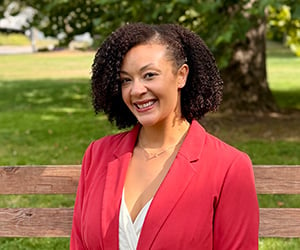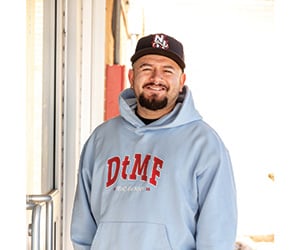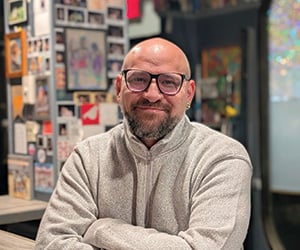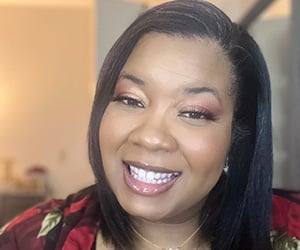Essay: Sharing the Work: A Better Way Forward
If an institution of higher education has made a commitment to advance diversity, equity and inclusion and wants to see those commitments survive the current political climate, then it must get buy-in from the top administrators, from the chief executive down, who would share the work and collaborate on those efforts.
After the murder of George Floyd in May 2020 and the subsequent verbal and financial commitments to DEI made by higher education institutions across the country, I never could have imagined the amount of backlash DEI would be receiving in 2023. Nevertheless, the critics are growing louder, while proponents are harder to hear in the din. The biggest reason why institutions find themselves on the back foot is siloed DEI, which is when the only person focused on advancing DEI is the chief diversity officer.
The majority of higher education institutions and leaders across the country made statements and investments in DEI in response to the murder of George Floyd. During this time, it almost felt like an expectation for every institution to make these statements and investments. This expectation could have come from pressure put on leaders to remain competitive and show that they cared and were committed to making our nation, and ultimately the world, a better place.
Don’t get me wrong. I firmly believe that these programs represent an important step in helping minority students feel they belong, feel safe, have a voice and are empowered on campus, and for non-minority students to learn how to be more kind, accepting and respectful of people with different backgrounds before entering the workplace and society.
But if we make policy decisions because we are pressured to do so, what will happen when the pressure comes from an opposing side with political capital? Will those statements continue when DEI is no longer popular, but rather under attack? What if by supporting DEI you risk losing necessary funding to keep your institution alive? Will financial investments made in DEI continue, even when budgets become tighter and tighter?
Being a leader is a challenging task. You open yourself up to criticism and have to make difficult decisions that can impact an entire institution. But the role of a chief diversity officer is particularly challenging, especially in this day and age. You could lose your job at any time, not because you are ineffective but because you are too effective.
Not only do you constantly open yourself up to criticism, but you more than likely hold multiple marginalized identities and are criticized by those who do not. You have to defend the existence of your role, while defending who you are as a person. Your mere presence in meetings can be off-putting to some. Your role has become (or always has been) a political statement.
So, what do we do? Do we simply throw in the towel and bend and mold to whatever we are asked to do? I’m convinced that there’s a better way: share the work.
Sharing the work builds collaboration, transparency, trust and accountability. If the only person that can articulate the value of DEI is the chief diversity officer, you will be fighting a losing battle. However, if all leaders within an organization understand and are able to articulate the value of DEI, it’s much more likely to win support. When DEI is siloed, it becomes vulnerable.
When we are questioned about DEI’s purpose and effectiveness, instead of becoming defensive, equipping other leaders (particularly the president) to effectively answer the question wins more supporters. I’ve seen this in my own institution. At Plymouth State University, our president consistently articulates the importance of DEI to various constituents who question the value, and it is well received, even by the most oppositional folks.
More often than not, attacks on DEI stem from fear. Fear that we are wasting finite resources. Fear that one will have something to lose if another has something to gain. Fear that one will be accused of being a sexist, racist or homophobe. Fear that things will have to change. Instead of making people feel guilty for asking questions or getting defensive, Plymouth State’s president articulates the value with clear, concise and specific reasons that he believes in and supports.
I believe most people have the capacity to change their perspective, and I’ve witnessed this over nine years working with various colleagues to support college students from all walks of life. And I believe the more we can work together to break down silos, our efforts to advance diversity, equity and inclusion will be more successful. When that happens, we will all benefit.
This article is featured in the winter 2023 issue of 603 Diversity.
603 Diversity’s mission is to educate readers of all backgrounds about the exciting accomplishments and cultural contributions of the state’s diverse communities, as well as the challenges faced and support needed by those communities to continue to grow and thrive in the Granite State.













